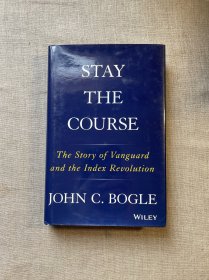
Science: An Introductory Reader 科学导读读本 鲁道夫·斯坦纳(施泰纳)【英文版,约36开】
尺寸:17.5cm × 12.5cm
¥ 128 九品
仅1件
广东广州
认证卖家担保交易快速发货售后保障
作者Rudolf Steiner, Howard Smith, Matthew Barton
出版社Rudolf Steiner Press
ISBN9781855841086
出版时间2003
装帧平装
页数251页
上书时间2024-12-24
- 在售商品 暂无
- 平均发货时间 9小时
- 好评率 暂无
- 最新上架
商品详情
- 品相描述:九品
-
无写划,少许自然老化黄斑。如有明显瑕疵,已尽可能反映在照片中,详情请仔细查看照片。
所有在售图书,出版社、出版年份、页数、装订形式等信息可能存在误差(部分条目直接套用孔夫子提供的书库信息,部分条目套用亚马逊等网站的图书数据),具体事实以照片展示为准。除照片明确展示以外,默认不含纸质图书以外的任何配件(包括但不限于光盘、网络资源等)。
- 商品描述
-
Rudolf Steiner, the often undervalued, multifaceted genius of modern times, contributed much to the regeneration of culture. In addition to his philosophical teachings, he provided ideas for the development of many practical activities including education―both general and special―agriculture, medicine, economics, architecture, science, religion, and the arts. Today there are thousands of schools, clinics, farms, and many other organizations based on his ideas.
Steiner's original contribution to human knowledge was based on his ability to conduct spiritual research, the investigation of metaphysical dimensions of existence. With his scientific and philosophical training, he brought a new systematic discipline to the field, allowing for conscious methods and comprehensive results. A natural seer from childhood, he cultivated his spiritual vision to a high degree, enabling him to speak with authority on previously veiled mysteries of life.
Topics include: from pre-science to science; the origin of mathematics; the roots of physics and chemistry, and the urge to experiment; the boundaries of science; understanding organisms: Goethe's method; the quest for archetypal phenomena; light, darkness, and color; the rediscovery of the elements; the nature of warmth; the scale of nature; the function of the ethers in the physical; subnature; the nature of atoms; and the natural and spiritual sciences.
Rudolf Steiner (1861–1925) was born in the small village of Kraljevec, Austro-Hungarian Empire (now in Croatia), where he grew up. As a young man, he lived in Weimar and Berlin, where he became a well-published scientific, literary, and philosophical scholar, known especially for his work with Goethe’s scientific writings. At the beginning of the twentieth century, he began to develop his early philosophical principles into an approach to systematic research into psychological and spiritual phenomena. Formally beginning his spiritual teaching career under the auspices of the Theosophical Society, Steiner came to use the term Anthroposophy (and spiritual science) for his philosophy, spiritual research, and findings. The influence of Steiner’s multifaceted genius has led to innovative and holistic approaches in medicine, various therapies, philosophy, religious renewal, Waldorf education, education for special needs, threefold economics, biodynamic agriculture, Goethean science, architecture, and the arts of drama, speech, and eurythmy. In 1924, Rudolf Steiner founded the General Anthroposophical Society, which today has branches throughout the world. He died in Dornach, Switzerland.
Matthew Barton is a translator, editor, teacher, and poet, and taught kindergarten for many years at the Bristol Waldorf School. His first collection of poems was Learning To Row (1999). He has won numerous prizes for his work, including an Arts Council Writer's Award and a Hawthornden Fellowship.
— 没有更多了 —





















以下为对购买帮助不大的评价